From Penzance to Paradise
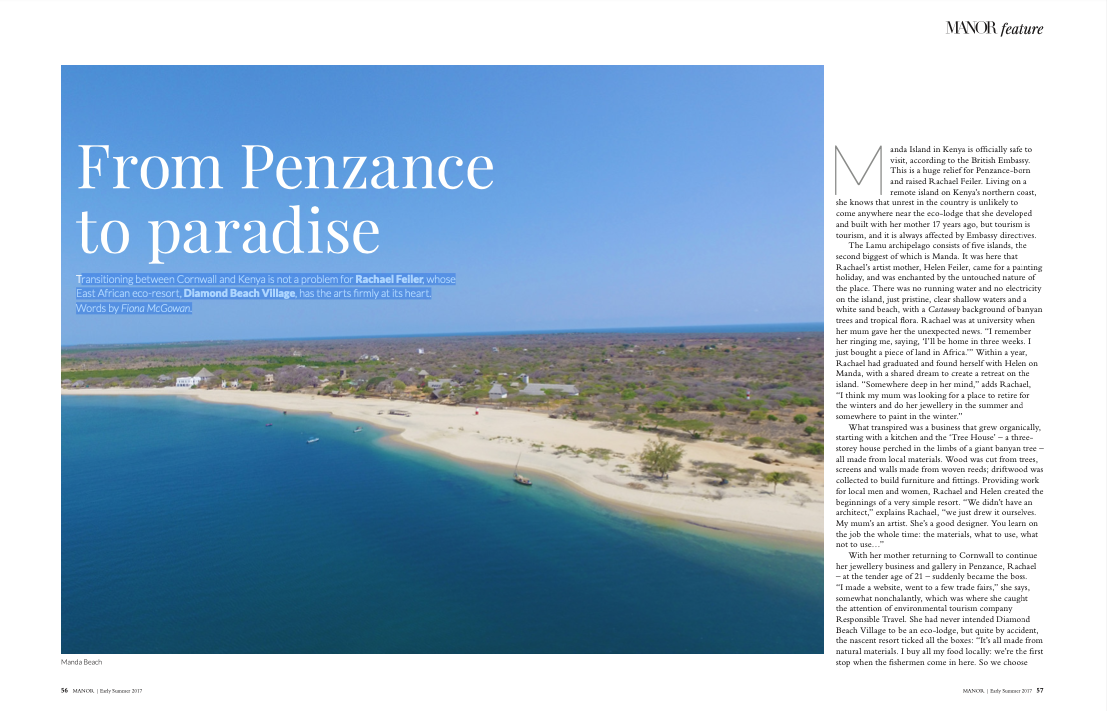
Manda Island in Kenya is officially safe to visit, according to the British Embassy. This is a huge relief for Penzance-born and raised Rachael Feiler. Living on a remote island on Kenya’s northern coast, she knows that unrest in the country is unlikely to come anywhere near the eco-lodge that she developed and built with her mother 17 years ago, but tourism is tourism, and it is always affected by Embassy directives.
The Lamu archipelago consists of five islands, the second biggest of which is Manda. It was here that Rachael’s artist mother, Helen Feiler, came for a painting holiday, and was enchanted by the untouched nature of the place. There was no running water and no electricity on the island, just pristine, clear shallow waters and a white sand beach, with a Castaway background of banyan trees and tropical flora. Rachael was at university when her mum gave her the unexpected news. “I remember her ringing me, saying, ‘I’ll be home in three weeks. I just bought a piece of land in Africa.’” Within a year, Rachael had graduated and found herself with Helen on Manda, with a shared dream to create a retreat on the island. “Somewhere deep in her mind,” adds Rachael,
“I think my mum was looking for a place to retire for the winters and do her jewellery in the summer and somewhere to paint in the winter.”
What transpired was a business that grew organically, starting with a kitchen and the ‘Tree House’ – a three- storey house perched in the limbs of a giant banyan tree – all made from local materials. Wood was cut from trees, screens and walls made from woven reeds; driftwood was collected to build furniture and fittings. Providing work for local men and women, Rachael and Helen created the beginnings of a very simple resort. “We didn’t have an architect,” explains Rachael, “we just drew it ourselves. My mum’s an artist. She’s a good designer. You learn on the job the whole time: the materials, what to use, what not to use...”
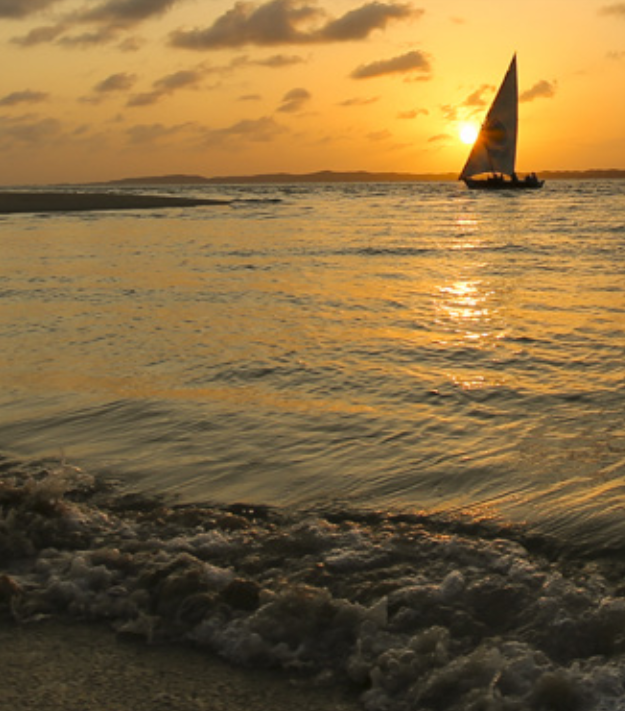
With her mother returning to Cornwall to continue her jewellery business and gallery in Penzance, Rachael – at the tender age of 21 – suddenly became the boss. “I made a website, went to a few trade fairs,” she says, somewhat nonchalantly, which was where she caught the attention of environmental tourism company Responsible Travel.
She had never intended Diamond Beach Village to be an eco-lodge, but quite by accident, the nascent resort ticked all the boxes: “It’s all made from natural materials. I buy all my food locally: we’re the first stop when the fishermen come in here. So we choose what we want, then they’ll go on to Shela and on to the market. We collect our rainwater. We’re running on solar and rainwater. The shower water is recycled. The donkeys come and collect the fruit and veg rubbish.”
One might imagine that a young Western woman running a business on her own in East Africa (“I felt very far from home and very much alone”) might come across some serious challenges. But she’s sailed through with a mixture of assuredness and a healthy dose of Cornish feistiness. The business now employs 13 staff, and while they are a great support to Rachael – “I couldn’t do any of it without them,” she says, gratefully – she’s also responsible for them and their families, which is a serious burden.
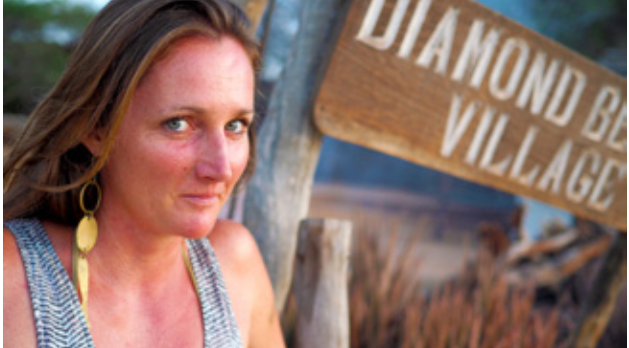
Although the eco-lodge has grown in a relaxed way (“if a room is too hot, we cut a hole in the wall to make a window”), Rachael’s personality won’t allow her to sit back. She grew up immersed in art and culture – with her artist mother, and grandfather Paul Feiler, once a prominent member of St Ives School of Painting – which might be why she is pushing towards making Manda a cultural venue. While her mother brings the love of art to the scene, Rachael wants to make Manda (and specifically Diamond Beach Village) the place to come for music.
“Lamu is now the island of festivals,” Rachael says. “At the last Arts Festival, we had 40 artists doing painting and creating here for three weeks. There was dhow racing, donkey races, henna painting... I put on a concert in Lamu town square. There were 1,000 Muslims watching the bands that I’d brought to perform here.” She now wants to put Manda on the map: “It’s such a creative island, such a beautiful place to be and create... I’m planning and plotting to start a Music Festival here, as part of the Arts Festival.”
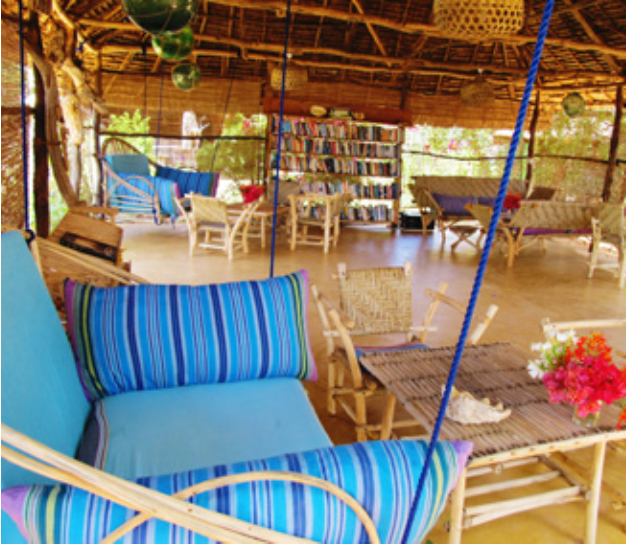
Planning and plotting is clearly what she does best. The resort draws a wide range of clientele – whether it’s the rich and famous for whom Lamu is an ideal hideaway, or yachty types, or NGO workers and ex-pats looking for some R&R, or tourists seeking an alternative holiday, not to mention an influx of Kenyans from a growing middle class that is keen to explore their own country. Catering for this wide range of visitors and age-groups is no problem: she runs music parties and pizza and film nights that draw people from across the narrow strip of water that separates Manda from Lamu.
She runs a free daily boat service for locals, and to pick up produce and water. And the parties are starting to get a reputation: “If we have a big party,” she enthuses, “everyone will come over and go back by boat. It’s amazing when it’s a full moon, because you can see the sails arriving on the beach. Last year, I put on a sunset sailing concert for the Arts Festival: we had 15 single-sail dhows with 10-15 people in each, and three bands on three different boats, and we all sailed off into the sunset, and came back here for a massive reggae party.”
The ‘can-do’ attitude extends to her five-year-old daughter, Tima. Rachael is a single mother running a demanding business, but she says that Tima has never wanted for attention and care. The staff in the resort are like an extended family, and Tima’s life is an enviable combination of freedom and safety. She potters about the resort, chatting to guests, making friends with visiting children and helping out in the kitchens. When Tima reached the age of three, Rachael and her friend Umra Omar (who runs Safari Doctors, delivering free healthcare to remote areas of the coast) decided that they wanted to educate their children in a more liberal way than the rather uptight local schooling system.
So, together they set up a nursery using the teaching methods of Montessori and Steiner. It seems like a dream education: “The main thing is to use what you’ve got here,” says Rachael. “The natural environment, the swimming, the fishing, the sailing, the growing, turtle-hatching... Stuff you can take the kids to see and experience here, learning through living on this amazing island.” Just as with the resort, Rachael and Umra plan to expand organically – a new Steiner teacher has been employed and accommodation provided for volunteers to work in the nursery and school.
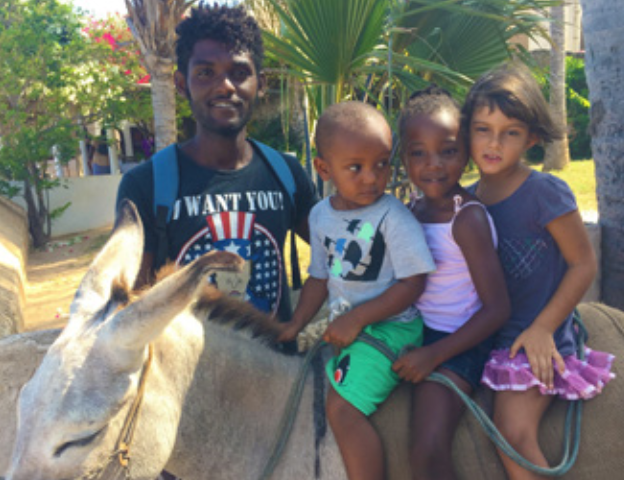
Tima’s life is about as diverse as it gets. She takes the boat across to Shela (the nearest town to Lamu) every morning, and then rides a donkey with two other children from the jetty to school. Her dad lives on an island which is a 20-minute flight away. She takes the plane alone – everyone at Lamu airport knows her –
and her father’s adoring family is waiting to greet her at the other end. She speaks Swahili with her Kenyan family, and being part of a Muslim culture requires no adjustment. And for three months of every year, she lives in Penzance – where she gets her mum all to herself, and spends the summer term at Newlyn Primary school.
Having spent all of her adult life running Diamond Beach, Rachael has a dichotomous sense of home. When she returns to Penzance from May to August, while the resort closes for the season, she fits right back in with her old friends and the lifestyle of her beloved West Penwith. Rachael is the first to admit that she is very spoilt. While running a resort on her own is hard work, she never has to cook, clean or make beds. And the food, she says, is amazing: banana pancakes, eggs on toast or toasted muesli, all baked in the pizza oven in the morning, lunch is some type of fresh fish, calamari or crab with a salad and a gazpacho soup, and there’s a three-course set meal for dinner (“or pizza – which I try not to have every day,” she smiles). Life in Penzance is a little more pedestrian, and although Mum is on hand to help out, she has to adjust to cooking and cleaning herself. It’s no surprise that after a few months in Kernow, she’s hankering to get back to her paradise island in Kenya.
